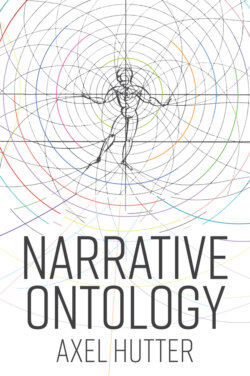Читать книгу Narrative Ontology - Axel Hutter - Страница 24
The Leitmotif
ОглавлениеThe leitmotif of the following line of thought is a sentence from Thomas Mann’s Joseph novel. It reads: ‘For anyone can say I, but what matters is who says it’ (166).
The phrase ‘anyone can say I’ points in its peculiar ambiguity to the central philosophical problem. With the little word ‘I’, we mean – whatever else we might want to say with it – firstly and above all ‘I’ and no one else: we mean ‘I’ as this particular individual, here and now, distinguished from the rest of the world.
The fact that literally anyone can say this little word, with which we so emphatically seek to express individuality and singularity, points, to be sure, to a fundamental question about the human I, giving rise to manifold confusions.
The leitmotif responds to this ambiguity of the I by explicitly highlighting, in its second part marked with a ‘but’, the particularity that is implicitly claimed in saying ‘I’. The sentence does not remain, then, with the indifference of saying ‘I’; rather, what really matters is who says ‘I’.
Thus, it appears at first glance as though the demanded particularity of the I that matters stood in opposition to the undifferentiated universality of saying ‘I’. It seems that it is first by demarcating from what everyone can equally say – that is, from the universal – that the I is made into a particular, individual or personal I.
Here, the leitmotif is initially grasped in this, as it were, ‘natural’ meaning that immediately imposes itself, and which at first glance the sentence and the word ‘I’ seem to exhibit. In the following, it will emerge, however, that the specific meaning of the I that matters is not in opposition to universality, but instead exhibits precisely the specific form of a self that, each in its own existence, succeeds in doing justice to the demand of universality that articulates itself in saying ‘I’.
